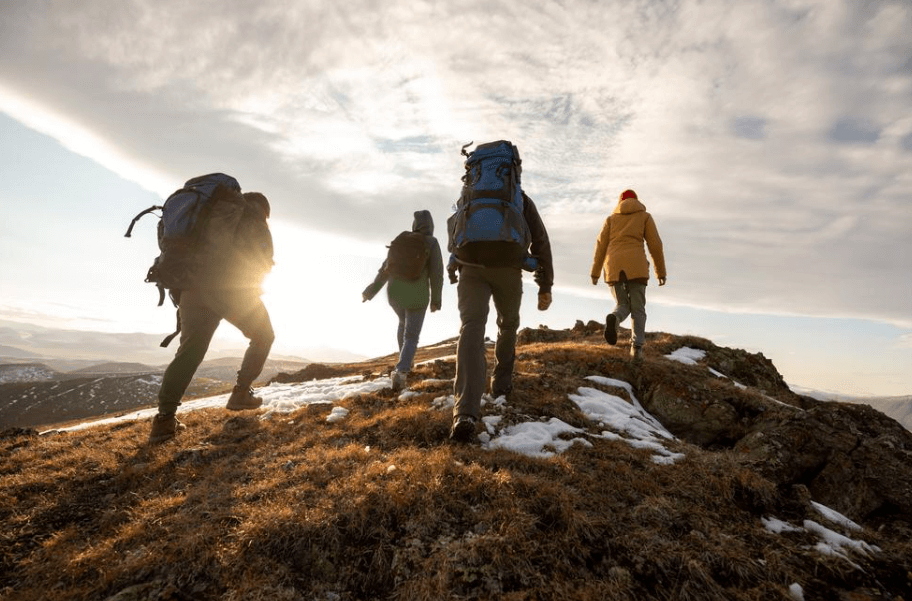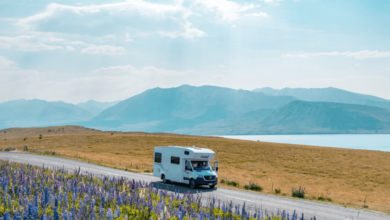
AdventureHoliday Travel
12 Essential Backpacking Tips for Hikers
There are lots of different types of backpackers out there. Whether you’re someone who backpacks leisurely or avidly, it’s always important to have the essentials on hand and follow some key rules to experience the best hikes while backpacking. Here are some of the most essential backpacking tips for hikers!
- Invest in quality backpacking and hiking gear. The gear you use is crucial for hiking successfully. Invest in a high-quality backpack, sleeping bag, tent and even items such as durable silicone rings or hiking boots. Make sure everything is lightweight and waterproof. If you decide to splurge on anything, splurge on a backpack and a sleeping bag. Those items will go a long way in making your backpacking experience enjoyable, so it’s okay to spend a little extra money on them.
- Always plan your route ahead of time. Any time you decide to go backpacking, it is absolutely essential to plan your route ahead of time, plus make sure you have enough time to complete it. Research your trail and learn about its terrain, weather conditions and altitude level to make sure you’re prepared. Otherwise, you might end up taking hours longer to complete something you thought would only take you half an hour, especially if you’re out in the summer heat. If you don’t plan properly, you could end up experiencing heat stroke or even hypothermia and dehydration.
- Only pack what you need. Packing what you need and items that are multipurpose will go a long way in ensuring you have all the essentials. Make a list of your packing items and stick to it, just like you’d do for any other trip. Try to only pack the necessary items, but don’t forget to bring a first aid kit and a few emergency supplies. Medicines, reusable water bottles and an extra set of clothes can also be helpful to bring along. Overall, only packing what you need is an essential tip that all backpackers can agree on.
- Hydrate often and bring a reusable water bottle, too. Staying hydrated is essential while hiking. Having a reusable water bottle on hand will help you reduce waste and might even make you think your water tastes better. You don’t have to worry about it getting too hot when you’re out hiking during the summer if you use an insulated stainless steel water bottle and add ice cubes before you go. Consider investing in a water filtration system so you can fill your water bottle up with water from rivers, lakes and streams without worrying about diseases.
Source: Alexander Brenner/Shutterstock.com
- Find the right apparel. What you wear while hiking matters. Dress in layers, wear a ball cap and always have a rain jacket on hand. Some of the best workout accessories can also be great to have on hand while backpacking or hiking. If you’re hiking in a water-prone area, some waterproof sandals might also be good to invest in. Either way, having the right apparel is essential when backpacking.
- Study up on survival skills. Do you know how to read analog GPS or a compass? Maybe you aren’t too sure how to administer CPR. While on the hiking trail, it is essential to know basic navigation and survival skills. Bring a map and compass and learn how to read them before heading out. Watch some tutorial videos on how to wrap wounds or even how to start a fire.
- Don’t rush your hike. Take frequent breaks while backpacking to rest and recharge. About every hour, take a five-minute break. Drink some water, check the time and pay attention to your surroundings. A longer lunch break, about an hour, is a good idea while hiking. Taking your time will help you prevent injuries and stay in top mental and physical shape during your hike.
- Bring snacks to enjoy. Just like with hydrating, it’s essential to have enough food. You’re exercising and burning calories while hiking. Having snacks on hand will help you replenish the energy you expel while hiking. Beef jerky, nuts, energy bars and even instant coffee are all great ideas for your backpacking trip. Meals you can easily warm over a campfire are also important to pack.
Source: everest/Shutterstock.com
- Confirm park availability. You might just assume that all the trails on your hike are open and operating. Depending on the time of year, that might not be the case. Always check with the National Parks website or call ahead to the Parks & Rec department that manages the hiking trail to confirm that it’s open and operating normally. Social media is also a great tool for this!
- Leave the trail as you found it. One of the major principles of hiking and backpacking is to honor and respect the land you’re using. Many parks and trails have rules regarding your usage. Don’t feed the wildlife, stay on the designated trails, don’t disturb the rock formations, and keep a distance away from lakes and streams so you don’t accidentally cause run off. Leaving the trail as you found it is a way you can show respect to the park rangers and the wildlife that live in the area.
- Establish an emergency contact. Let your contact know where you’re going before you leave. While it’s always a good idea to hike with someone else, some people enjoy hiking alone. If this is you, make sure you establish an emergency contact. Let them know what trails you’re going on and how long you plan to be there. This way, they can check up on you and know when to reach out for help locating you.
- Be cautious. Storms can seemingly come out of nowhere, especially in the summer months. Prior rain storms can lead to muddy and unstable ground while hiking, and the same goes for snowy terrain during the winter months. Always be cautious when backpacking.
Lots of people enjoy backpacking because they get to enjoy nature while getting some light exercise. With proper planning, you can make your backpacking trip unforgettable. Having the essentials will ensure your backpacking experience goes smoothly.


